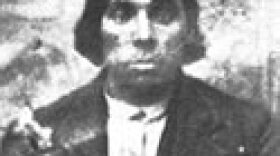115 years after the first African-American student enrolled at MSU, the campus welcomed the largest class of black freshmen of any Big Ten school.
Myrtle Craig enrolled at the Michigan Agricultural College in 1902. Craig was the first African-American woman to attend the school, but faced certain limits.
According to an article from Michigan State University’s Archaeology Program, as an African-American Craig could attend class, but the dining halls and dormitories were off limits. A century later, MAC is MSU, and they still work to be more inclusive.

This fall MSU welcomes a freshmen class of almost 8,000—one of the largest in the school’s history. That class includes 630 African-Americans—more than any other Big 10 school this year.
While a controversial measure known as Proposal 2 prohibited affirmative action for Michigan universities back in 2006, Director of Admissions James Cotter said this has not deterred MSU from actively recruiting students with diverse ethnic backgrounds.
Programs such as Maximizing Academic Growth in College, or MAGIC, a summer transition program for freshmen, have been a positive force for students of diverse cultural backgrounds.
Juwan Clarke, President of Alpha Phi Alpha, an historic African-American fraternity, cites programs like MAGIC as a positive tool for African-American students that choose MSU over other schools.
The Admissions Office faces issues such as adjusting to the national political atmosphere. MSU knows its response to controversies, such as white supremacist Richard Spencer’s request to speak on campus and the ensuing lawsuit, is crucial to whether or not its minority students feel safe on campus.
Clarke acknowledges the progress made by the university, but is reluctant to say all of the problems have been solved.
African American students we spoke with said support from their peers has been helpful transitioning into university life. Myrtle Craig’s legacy is survived by MSU’s effort to include everyone.



